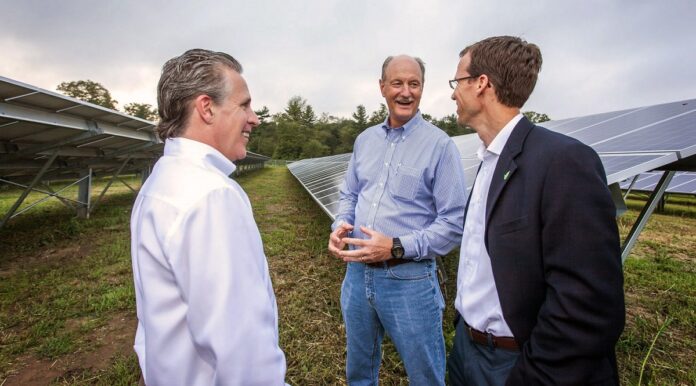Clean Energy Collective (CEC) is partnering with MS Solar Solutions (MSSS), subsidiary of Morgan Stanley to launch and develop community-shared solar program across Massachusetts.
The jointly owned body will help install multiple PV projects in Massachusetts over the next 18 months, totaling 50MW worth of community-shared solar capacity.
It is expected that the program will enable Massachusetts residents to save money by participating in these solar projects.
It also enables CEC to quickly and efficiently build enough capacity to keep pace with the rapidly growing demand for community solar.
Community PV utilises medium-scale PV systems that generate energy to a utility’s grid, which is then accessible to all utility customers, including residential, commercial and government entities.
It allows customers with properties unsuited to solar arrays to access the benefits of solar energy.
Through this program, CEC is helping to spur community solar across Massachusetts by offering PV solutions with no money down while guaranteeing residential participants an instant 5 percent savings over existing utility rates.
CEC is leading the charge in development across Massachusetts with its SolarPerks program, a community-shared renewable solution that requires no money down and guarantees residential participants an instant 5 percent savings over existing utility rates.
Besides, there is no installation, permitting, personal financing, or maintenance required, and no ongoing costs. Commercial net metering credit programs are also available.
To serve the demand for SolarPerks, CEC has multiple projects online and over 20 MW in late-stage development across the commonwealth’s National Grid and former NStar territories of Eversource.
As a result of the relationship with MSSS, an additional 30+ MW of projects are in early development and expected to be announced over the course of 2015.
Community solar gardens first took off in Colorado a few years ago, spreading slowly to Minnesota, California, Massachusetts and several other states.
Capacity is expected to grow sharply this year, and interest is up among both residential customers who just like the idea and large companies that want to cut their carbon footprint.
Sabeena Wahid
editor@greentechlead.com

